英文首页﹀
【8.26 Forum】The 17th NSE International Development Forum
2017-08-21
Time:15:30-17:00 August 26 (SAT.), 2017
Venue:Conference Room Moonlight, Overseas Exchange Center of Peking University
Language: English
Organized by:
Center for New Structural Economics at Peking University (CNSE)Institute of South-South Cooperation and Development at Peking University (ISSCD)
Supported by:
CITIC Press GroupThe Economic Observer - Book Review
Economist
Moderator:
Jiajun XU(Assistant Professor, Executive Deputy Director, CNSE, Peking University)
Speaker:
Ian Goldin( Professor, Director of the Oxford Martin School, the University of Oxford)Chris Kutarna (Fellow of the Oxford Martin School, the University of Oxford)
Guest Commentator:
Justin Yifu Lin (Director of Center for New Structural Economics, Dean of Institute of South-South Cooperation and Development , Professor and Honorary Dean of National School of Development, Peking University)
FU Jun ( Professor , the National School of Development and the School of Government, Academic Dean of Institute of South-South Cooperation and Development, Peking University)
Sign up for attendance, please click Here
【ABSTRACT】
Age of Discovery explores a world on the brink of a new Renaissance and asks: How do we share more widely the benefits of unprecedented progress? How do we endure the inevitable tumult generated by accelerating change? How do we each thrive through this tangled, uncertain time?
From gains in health, education, wealth and technology, to crises of conflict, disease and mass migration, the similarities between today's world and that of the fifteenth century are both striking and prophetic: we have been here before. So what must we do to achieve our full potential, individually and altogether, this time around? Will we repeat the glories of the Renaissance, the misery, or both?
In Age of Discovery, Ian Goldin and Chris Kutarna show how we can draw courage, wisdom and inspiration from the days of Michelangelo and Leonardo da Vinci in order to fashion our own Golden Age. Whether we’re seized by Gutenbergor Zuckerberg, the discovery of the Americas or the rise of China, copper plate etchings or silicon chips, the Bonfire of the Vanities or the destructive fury of ISIS, the spread of syphilis or the Ebola pandemic, such Renaissance moments force humanity to give its best just when the stakes are at their highest.
The present is a contest between the bright and dark sides of discovery. To avoid being torn apart by its stresses, we need to recognize the fact―and gain courage and wisdom from the past. Age of Discovery shows how.
Now is the best moment in history to be alive, but we have never felt more anxiousor divided. Human health, aggregate wealth and education are flourishing. Scientific discovery is racing forward. But the same global flows of trade, capital, people and ideas that make gains possible for some people deliver big losses to others―and make us all more vulnerable to one another.
Business and science are working giant revolutions upon our societies, but our politics and institutions evolve at a much slower pace. That’s why, in a moment when everyone ought to be celebrating giant global gains, many of us are righteously angry at being left out and stressed about where we’re headed.
To make sense of present shocks, we need to step back and recognize: we’ve been here before. The first Renaissance, the time of Columbus, Copernicus, Gutenberg and others, likewise redrew all maps of the world, democratized communication and sparked a flourishing of creative achievement. But their world also grappled with the same dark side of rapid change: social division, political extremism, insecurity, pandemics and other unintended consequences of discovery.
Now is the second Renaissance. We can still flourish―if we learn from the first.
Keynote
Age of Discovery looks at the world on the brink of a new Renaissance and asks the question, how do we avoid chaos and disruption, and share more widely the benefits of progress?
Key Features and Highlights
- A timely and unique interpretation of a world at the crossroads: a classic in the making
- Ian Goldin is a world-famous academic and author, previously Vice President of the World Bank and has been nominated Global Leader of Tomorrow by the World Economic Forum
- Both authors have an extensive network in academia and the business world and will be extremely active in the promotion of the book
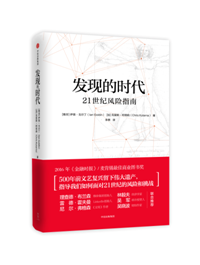
Age of Discovery
By Ian Goldin & Chris Kutarna
Public:2017.05
Publisher:CITIC Press Corporation - Sight
The new book was translated into Chinese and has been published by CITIC Press.
For more on the original book, please refer to https://www.amazon.cn/【Speaker】
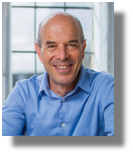
Ian Goldin
Ian Goldin is a professor and the director of the Oxford Martin School at the University of Oxford. He was Vice President of the World Bank from 2003-2006. Formerly, he was Chief Executive and Director of the Development Bank of Southern Africa and served as an adviser to President Nelson Mandela. He is currently Oxford University Professor of Globalisation and Development and a Senior Fellow at the Oxford Martin School, and a Professorial Fellow at the University’s Balliol College.
During his decade as Director the School established 45 programmes of research, bringing together more than 500 academics from across Oxford, from over 100 disciplines, and becoming the world’s leading centre for interdisciplinary research into critical global challenges.
Professor Goldin initiated and was Vice-Chair of the Oxford Martin Commission for Future Generations, which brought together 19 international leaders from government, business, academia, media and civil society to address the growing short-term preoccupations of modern politics and business, and identify ways of overcoming today’s gridlock in key international negotiations. The Commission’s report, Now for the Long Term, was published in October 2013.
From 2003 to 2006 he was Vice President of the World Bank, and prior to that the Bank’s Director of Development Policy (2001-2003). He served on the Bank’s senior management team and led the Bank’s collaboration with the United Nations and other partners as well as with key countries. As Director of Development Policy, he played a pivotal role in the research and strategy agenda of the Bank.
From 1996 to 2001 he was Chief Executive and Managing Director of the Development Bank of Southern Africa and served as an advisor to President Nelson Mandela. He succeeded in transforming the Bank to become the leading agent of development in the 14 countries of Southern Africa. During this period, Goldin served on several Government committees and Boards, and was Finance Director for South Africa’s Olympic Bid.
Previously, Goldin was Principal Economist at the European Bank for Reconstruction and Development (EBRD) in London, and Program Director at the OECD Development Centre in Paris, where he directed the Programs on Trade, Environment and Sustainable Development.
He has a BA (Hons) and a BSc from the University of Cape Town, an MSc from the London School of Economics, and an MA and Doctorate from the University of Oxford.
Goldin has received wide recognition for his contributions to development and research, including having been knighted by the French Government and nominated Global Leader of Tomorrow by the World Economic Forum. He has published over 50 articles and 20 books, including Globalization for Development: Meeting New Challenges (Oxford University Press, 2012), Exceptional People: How Migration Shaped our World and Will Define our Future (Princeton University Press,2011), Divided Nations: Why global governance is failing and what we can do about it, (Oxford University Press, 2013), The Butterfly Defect: How globalization creates systemic risks, and what to do about it (Princeton University Press, 2014) and an edited volume, Is the Planet Full? (Oxford University Press, 2014). His latest books are The Pursuit of Development: Economic Growth, Social Change and Ideas (Oxford University Press, 2016) and Age of Discovery: Navigating the Risks and Rewards of Our New Renaissance (Bloomsbury and St Martin’s Press, 2016).
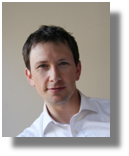
Chris Kutarna
Chris Kutarna is an author and political scientist. He is currently an Oxford Martin Fellow, working with Professor Ian Goldin.(Research Assistant to Ian Goldin)Chris was born in Regina, Saskatchewan, Canada. He has lived and worked in New Zealand, Australia, China and the United Kingdom.
His research focuses on mapping and tracking ideological diversity among China's emerging middle class. (Insert link to chapter of thesis). Kutarna also explores contemporary migration issues, especially as it pertains to wealthy elites in China and other developing countries.
With Ian Goldin, Kutarna coauthored Age of Discovery: Navigating the Risks and Rewards of our New Renaissance. The book was published in May 2016 by St Martin's Press and by Bloomsbury.
He is an op-ed contributor to Guancha.cn, a Chinese news and affairs magazine and social media company. Kutarna also contributed to Globality: Competing with Everyone from Everywhere for Everything, published by Business Plus in 2008. He is a contributor to La Vie des Idées (Books & Ideas) and blogs for Psychology Today.
Kutarna attended Dr Martin Le Boldus High School in Regina, Canada, and has a Bachelor of Commerce (B.Comm, Honours) degree from the Sprott School of Business, Carleton University, Ottawa and the Ecole Superieure de Commerce in Rennes, France. He also holds an MA and DPhil (Politics) from the University of Oxford.
Kutarna worked at the Boston Consulting Group from 2004 to 2007, based in the Group’s Auckland, Melbourne, Sydney and finally Beijing offices. From 2008 to 2015, Kutarna served as Special Advisor and later Vice-President, China for Dundee Corporation, a Canadian investment management firm. Kutarna is a founding member of the Hong Kong-ASEANEconomic Cooperation Foundation Kutarna is a two-time recipient of Canada’s Governor General’s Medal, awarded for academic excellence. He has also been a recipient of the Saskatchewan Junior Citizen of the Year Award.
During his doctoral studies at the University of Oxford, Kutarna held a Commonwealth Scholarship, a Canadian SSHRC Doctoral Award, and a Dahrendorf Scholarship for the Study of Freedom.
In 2007, Kutarna was named a Fellow of the Jeanne Sauvé Foundation in recognition of his public service and creative works.
【Guest Commentator】
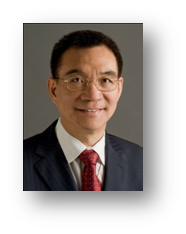
Justin Yifu LIN
Justin Yifu LIN is Director of Center for New Structural Economics, Dean of Institute of South-South Cooperation and Development and Professor and Honorary Dean of National School of Development at Peking University. He was the Senior Vice President and Chief Economist of the World Bank, 2008-2012. Prior to this, Mr. Lin served for 15 years as Founding Director and Professor of the China Centre for Economic Research (CCER) at Peking University. He is the author of 23 books including Beating the Odds: Jump-Starting Developing Countries, Going Beyond Aid: Development Cooperation for Structural Transformation, Against the Consensus: Reflections on the Great Recession, the Quest for Prosperity: How Developing Economies Can Take Off, Demystifying the Chinese Economy, and New Structural Economics: A Framework for Rethinking Development and Policy. He is Councillor of the State Council, a member of the Standing Committee, Chinese People’s Political Consultation Conference, and Vice Chairman of the All-China Federation of Industry and Commerce. He is a Corresponding Fellow of the British Academy and a Fellow of the Academy of Sciences for Developing World.
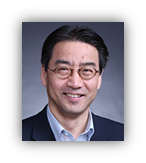
FU JUN is Professor of Political Economy and Public Policy at both the National School of Development and the School of Government, and the Academic Dean of Institute of South-South Cooperation and Development, at Peking University. He has previously served as Executive Dean of the School of Government at Peking University, Professor and Associate Deanat the School of Public Policy and Management and Associate Professor and Professor at the School of Economics and Management at Tsinghua University.
His research interests include mathematical modeling, institutional political economy and related policy and legal issues such as anti-trust and regulations. He is the author of Institutions and Investments (Studies in International Economics, the University of Michigan Press) and The Dao of the Wealth of Nations (in Chinese by Peking University Press).
In other personae, he was a Foreign Service officer with the Ministry of Foreign Affairs of China, a member of the Listing Committee of Shenzhen Stock Exchange, advisor to Chairman of the Executive Council of UNESCO. He is a board member SOS Village (China), and of China Foundation for Peace and Development, and he appears regularly on CCTV News as a commentator, and speaks regularly at the World Economic Forum where has served as vice chair of its Global Agenda Council on New Growth Models.
He received BA from Beijing Foreign Studies University, LLB from Foreign Affairs College (China), and MA (Regional Studies - East Asia) and PhD (Government - Political Economy) both from Harvard University. He is honorary President of Harvard Club of Beijing.

The New Structural Economics & International Development Forum
The New Structural Economics & International Development Forum was initiated in March 2016 and is organized by the Center for New Structural Economics (CNSE) at Peking University. The Center aspires to advance the frontier research on structural change and help developing countries to promote economic structural transformation. The Forum aims to bridge the gap between research and practice by hosting high-profile, open and equal conversations among scholars, professionals, policy makers and entrepreneurs in the field of international development.

